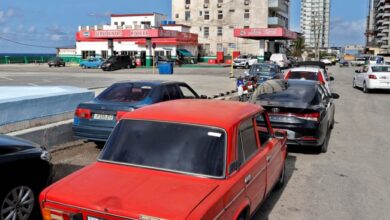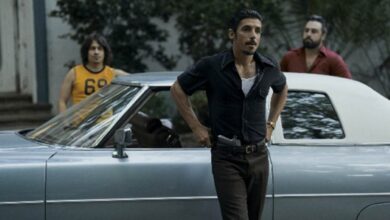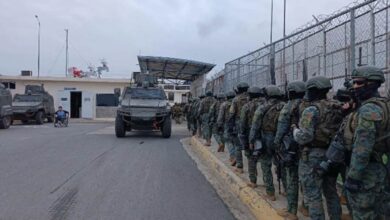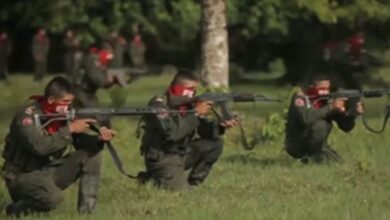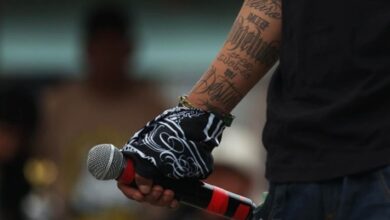Latin America: Everything you need to know about Pedro Sánchez’s tour
The Spanish President visited four countries in Latin America to strengthen diplomatic relations


On August 27, the Spanish Prime Minister, Pedro Sánchez, began a tour of Latin America. Sánchez visited Chile, Bolivia, Colombia, and Costa Rica to "correct a deficit in the presence of Spain in the region by previous governments", as stated by the Europa Press.
Read in english: Así fue la gira latinoamericana de Pedro Sánchez
Your way through Chile
Cooperate in subjects such as # education , health, #democracy and gender equality and promote the presence of Spanish companies in the Bioceanic Railway Corridor. These are the fundamental agreements we have reached with @evoespueblo in the visit to #Bolivia . https://t.co/Bl6HRlBFlP pic.twitter.com/K0BBDOMQuY
– Pedro Sánchez (@sanchezcastejon) August 29, 2018
During the visit to Chile, Sánchez spoke with his counterpart Sebastián Piñera, and they agreed to cooperate on matters such as cybersecurity (protecting the computer systems of official organizations, the financial system and security systems), as highlighted by RT.
The same medium also adds that topics such as a development cooperation program were treated. As well as cooperation with the Youth Mobility Agreement, in order to facilitate the movement of professionals between the two countries.
In his short stay, the Spanish president added a surprise visit to the Museum of Memory and Human Rights, where he met with Isabel Allende. It should be remembered that Isabel is the daughter of President Salvador Allende, who was overthrown by the dictatorship of General Augusto Pinochet in the 1970s. During that dictatorship thousands of Chileans were disappeared or tortured.
In relation to the visit, Sánchez referred to it as "exciting" and plans to create a museum of such characteristics in his country. The newspaper El Diario mentions that "Sánchez, supporter of constituting a Truth Commission in Spain, has declared himself impacted by the museum."
The second stop: Bolivia
Water is life. Today I saw the progress of #Bolivia in access to water and sanitation, rights recognized by @ONU_es and collected in # Agenda2030 . The Government ratifies its commitment to reduce poverty and expand cooperation. Great work of @AECID_es #LATAM pic.twitter.com/IP3RwyBm8V
– Pedro Sánchez (@sanchezcastejon) August 29, 2018
One of the main objectives of Sanchez's visit to Bolivia was to be able to strengthen relations between the two countries. It was not for less, because after 20 years Pedro Sánchez was the first Spanish president to visit Bolivia. During the meeting with the President of Bolivia, Evo Morales, three important agreements were signed for both countries.
The agreements deal with the Pact of the Bioceanic Integration Railway Corridor, the strengthening of justice and the consolidation of binational cooperation, as TeleSur affirms.
Thus, with the construction of the Bioceanic Railway Corridor, Spain intends to invest in construction. Evo Morales described the visit as historic and decorated the Spanish president with the "Condor of the Andes", the maxim that the Bolivian state gives.
Does Spain host the peace talks with ELN?
I leave you a summary in images of the visit to #Colombia . We have strengthened our strategic link and we are committed to working together in the promotion of … https://t.co/0zSXRAE2N0
– Pedro Sánchez (@sanchezcastejon) August 30, 2018
The third country in the visit tour of the Spanish president was Colombia. In the meeting he had with Iván Duque, they discussed important issues such as Venezuelan migration, peace agreements with the FARC, and judicial cooperation, as reported by El Tiempo.
The same newspaper states that, "Sánchez informed Iván Duque that the European Union approved an aid of 35 million euros for Latin America in order to face the Venezuelan migration crisis." On the other hand, Pedro Sanchez said that Duque's intentions regarding the peace process were good and that the Colombian president wanted to follow the peace process.
He also confirmed his help and put on the table to accompany the dialogues with the largest guerrilla that remains active in Colombia, as reported by teinteresa.es
Duque affirmed, in his inauguration speech, that in his first 30 days of government he would evaluate the negotiations with the ELN. For Duque "a credible process must go hand in hand with the cessation of all criminal actions", as stated by Semana.
The end of the tour
We started an intense work day at #CostaRica . Together with the president @CarlosAlvQ, I will attend an event on decarbonisation and climate change. We will offer a joint press conference and I will visit @CorteIDH . I will also hold a meeting with Spanish residents in the country. pic.twitter.com/YAWuc9KJnA
– Pedro Sánchez (@sanchezcastejon) August 31, 2018
At the last stop of the Spanish president, in Costa Rica, he met with his counterpart Carlos Alvarado. According to El País, the main issue in the talks were about climate change and decarbonization. In addition, the strategic alliances of both countries will be strengthened in matters of disarmament, democracy, promotion of peace, among others.
On the other hand, and in the middle of the meetings with Alvarado, Sanchez ratified the aid to Nicaragua, in spite of its internal crisis. He also said that he would support Costa Rica in the face of the growing number of immigrants arriving in the country.
The president also pointed out that "Spain will always be on the side of countries that make a great effort not to close borders, but to make treatments respectful of human rights, order migration and welcome people fleeing from political conflicts such as now in Nicaragua, "as La Vanguardia reports.
What about Venezuela?
One of the undeniable issues is to talk about the Venezuelan crisis, which affects millions of people who leave the country every day in order to have a better future in neighboring countries. However, Pedro Sánchez did not give an accurate position. Sanchez, unlike Piñera and Duque, refused to condemn the situation of Venezuela as a dictatorship.
He preferred to refer to the political situation in Venezuela as a need for "dialogue with itself" and "among Venezuelans" and limited the role of the international community to "accompany that dialogue," says El Mundo.
In this regard the Chilean president, Sebastián Piñera, mentioned that "we believe that Venezuela stopped being a democracy. He had all the opportunities in the world but he followed the wrong path, he does not respect the division of powers or fundamental rights. But the worst is the deep humanitarian crisis that is living product of his economic setback", as mentioned in the newspaper El Independiente.
On the other hand, the Colombian president had already announced that if he were to become president, he would denounce Nicolás Maduro before the International Criminal Court. In addition, according to the El Navío media, he would do so by comparing the chavista autocrat with an abusive one.
LatinAmerican Post | Laura Viviana Guevara Muñoz
Translated from "Así fue la gira latinoamericana de Pedro Sánchez"

